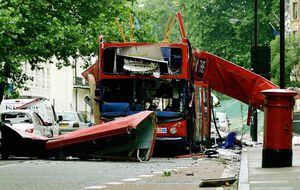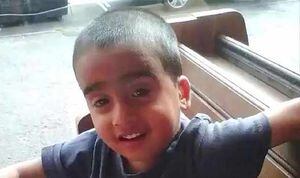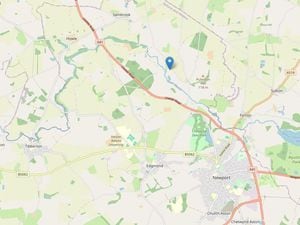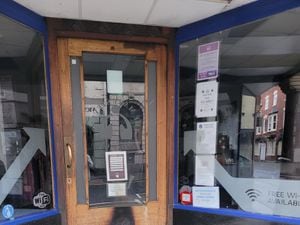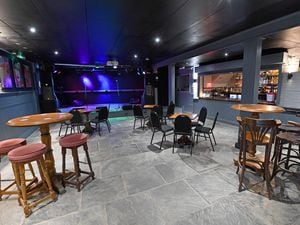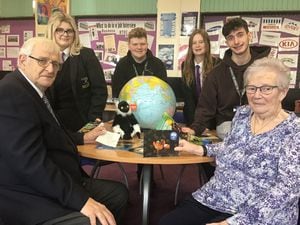Meet the hidden volunteers who act when tragedy strikes
They are the highly-trained police volunteers who only emerge when disaster strikes.
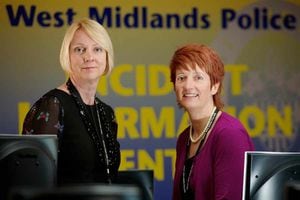
Members of the Casualty Bureau assemble at a moment's notice in the event of a serious crime or catastrophe.
When tragedy hits, they are the people manning the emergency phone lines that scroll across the bottom of our television screens.
Managed by West Midlands Force CID, the 174-member all volunteer unit join together to respond to calls coming in to the specially set up phone lines dealing with crimes across the country including terrorist attacks, police appeals for witnesses and natural disasters.
In recent years its members have been involved with the London bombings on July 7, 2005, the Suffolk prostitute murders in 2006, the disappearance of Madeleine McCann in 2007 and the Christina Edkins murder investigation last year.
Most recently the West Midlands Casualty Bureau phone lines opened to support Police Scotland when three-year-old Mikaeel Kular went missing in Kirkcaldy in January.
But the unit's remit is not confined to these shores. In the past it has been mobilised after the September 11 attacks in the USA and the devastating tsunami which resulted after the 2004 Indian Ocean earthquake.
When lives are in the balance, the West Midlands Police Casualty Bureau is ready to respond.
And as unit manager Lisa Lacey explained, their job involves far more than simply receiving calls.
As well as acting as a first port of call for family and friends concerned about the safety of their loved ones, the unit is also charged with providing and gathering information that may prove vital to an investigation.
"We're not just call-takers; we're an integral part of any investigation," said the 47-year-old from Cannock, who joined the bureau in 2004.
"Our job is to gather information, piece it together and help push the inquiry forward while also reassuring the public."
Fellow manager Pc Tracey Pearson, aged 47, from Brierley Hill, joined the Casualty Bureau in 1990 while she was working the beat on the streets of Dudley.
She said: "In most cases we're taking calls from hundreds if not thousands of people who are worried about loved ones who they fear may have been caught up in an accident or natural disaster.
"But we also open up whenever we're expecting lots of inquiries from the community or the media, such as a high-profile murder enquiry or a missing person investigation such as a Child Rescue Alert.
"We have to process a great deal of information but it's not always the same job; every incident is different and you just never know what you're going to get."
The bureau played a vital role in the investigation following the murder of schoolgirl Christina Edkins in Birmingham, as Tracey explained.
"The incident happened in the afternoon and fortunately a number of bureau volunteers were already in and around Lloyd House, so we were able to set up within an hour," she said, recalling the tragic events last March.
"At the scene of the incident people were rushing around and there was travel chaos.
"Our job was to assist with investigators by speaking with potential witnesses, but we also had to talk to members of the public who were concerned someone they know may have been on the bus at the time."
Eventually the team were able to help to identify the offender after taking a call from a delivery driver who had recognised the killer's distinctive jacket.
"He was wearing a coat with a tiger design and we took a call from a lady who had spotted him shortly after the incident," added Tracey.
"She was a delivery driver and had a log of the precise time when it happened as she had just dropped off a parcel. This was vital as it enabled us to piece together a pattern of the offender's movements which eventually led to his arrest."
The volunteers collect a vast quantity of information which is put into a nationally recognised police computer system and cross referenced to identify possible matches.
Every force in the country now has a casualty bureau operating on the same system, meaning that during an incident they can support each other and take calls on behalf of other forces.
But the West Midlands branch was the first in the country and can trace its roots back to 1974 and the immediate aftermath of the Birmingham pub bombings.
Retired Superintendent Mike Collins, now aged 82 and living in Wolverhampton, was involved in setting up the bureau as part of the fledgling West Midlands Police Force.
He said: "When the first news came through of the pub bombings the first reaction was one of disbelief.
"I dashed back to the city to set up the casualty bureau that collated the names of the injured and where they were being treated so that relatives could be informed.
"But we were totally overrun. There were eights of us dealing with hundreds of calls from frightened friends or relatives. We were under-manned and the phone lines were constantly engaged.
"There were casualties in a dozen hospitals and locating them was extremely difficult. It was the biggest terrorist attack in this country at the time and we were completely overwhelmed."
In the weeks following the bombings Mr Collins headed up an inquiry into the night's events and was tasked with overhauling the bureau.
"We had a series of very heated meetings resulting in us significantly increasing the number of incoming lines and the appointment of s specialised supervisor to oversee the bureau's operation," he added.
"I suppose it was a step closer to what the bureau has become today."
Since those early days the unit has continued to evolve, with volunteers' skills regularly updated through training programmes.
"We always have to keep up with technology," said Tracey. "With people so easily able to keep in touch with one and other, it can often make our job much more difficult.
"The people who call us will often know their loved one has been caught up in something because they've seen their last location on Facebook or Twitter but that puts us in an awkward situation.
"We can't afford to make mistakes so we'll never give out information until we can guarantee it's correct, even when sometimes the caller already knows the worst has happened."
It can be a harrowing task.
When the national emergency number was circulated following the London bombings in 2005, West Midlands Police's Casualty Bureau was the first to take calls from the public.
Lisa was training new volunteers on the last day of their four-day course when she was contacted by the Metropolitan Police asking for the phone lines to be opened.
"Certainly 7/7 hit home for me," she said.
"They were people going to work, going about their normal business and then this horrific incident they were involved in.
"To listen to people who were concerned about their loved ones, who had just waived them off to work, that was very poignant. None of us knew how we were going to react."
"We were all in shock watching it unfold on the TV and dealing with thousands of calls from people who feared their friends or relatives could be involved."
Yet despite the hours of training, Lisa said the volunteers can never truly prepare for the calls they receive.
"They could be very upset or they could be giving vital intelligence and you've got to take each call differently," she added.
"If someone is unfortunate enough to lose a loved one, the reality is that there's not much we can do but we can make a big difference if we deal with them compassionately, record their details accurately and ultimately aid the overall criminal investigation.
"At the very worst time, the least we can do is our very best."
And next time a major incident unfolds the unit will be ready to mobilise once again.
